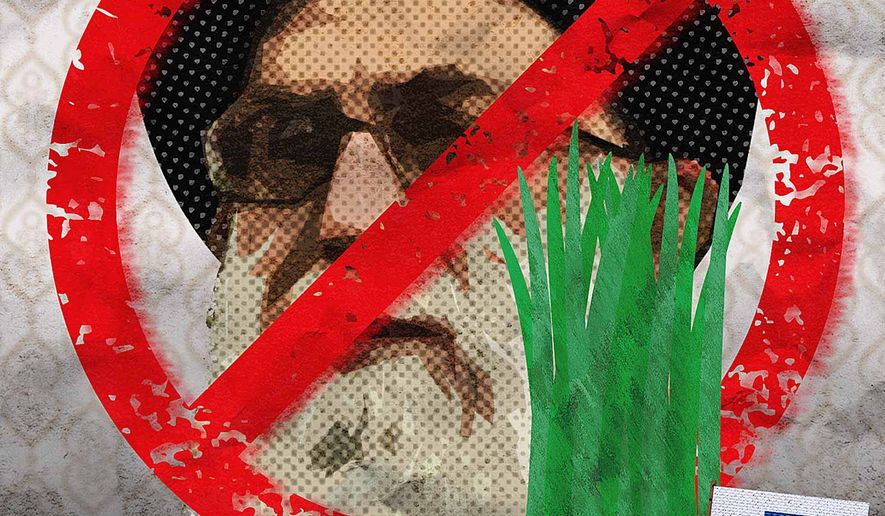OPINION:
In the fevered speculation now taking place over whether the Trump administration will truly “nix” the 2015 Iran nuclear deal when it comes up for renewal later this spring, another, equally seismic shift in U.S. policy toward the Islamic republic has gone largely unnoticed. On March 20, America formally reclaimed its historic role as a champion of the Iranian people.
That date, which marks the Persian new year, or Nowruz, has been recognized by every U.S. president since Gerald Ford with an official message. It is a powerful rhetorical device — one that has been used to great effect in the past by both Democrats and Republicans to highlight the repressive nature of the Iranian regime, and to draw a distinction between the current Islamic republic and the country’s storied Persian past.
Under the Obama administration, however, this outreach fell victim to official engagement with Iran’s ayatollahs. President Obama’s first Nowruz message, issued in March of 2009, properly called upon the Iranian regime to abandon extremism and “take its rightful place in the community of nations through peaceful actions that demonstrate the true greatness of the Iranian people and civilization.”
But over time, his administration focused less and less upon the plight and potential of the Iranian people, and more and more on ingratiating itself with the repressive government that ruled over them. By the time of its final Nowruz message in 2016, the Obama White House contented itself simply with expressing hopes that the 2015 nuclear deal between Iran and the P5+1 powers had created the basis for “progress between the Islamic Republic and the international community, including the United States.”
This state of affairs presented President Trump with a signal opportunity. Through a robust Nowruz message, the new president can send a potent and very public signal that the United States, now under new management, is once again willing to stand unequivocally with the Iranian “street.”
Mr. Trump’s inaugural Nowruz message, issued last spring, fell short of this mark, simply offering generic holiday greetings. But with this year’s missive, the Trump administration has done just that, taking aim squarely at the corruption, repression and militarism of the Islamic republic.
“Twenty-five centuries ago,” the new White House statement notes, “Darius the Great asked God to protect Iran from three dangers: Hostile armies, drought, and falsehood. Today, the Iranian regime’s Islamic Revolutionary Guard Corps (IRGC) represents all three.”
The IRGC is tantamount to “a hostile army,” the presidential message details, one “that brutalizes and steals from the Iranian people to fund terrorism abroad” and “employs propaganda and censorship to hide the fact that the Iranian regime plunders Iran’s wealth and abuses its people.” Moreover, this force serves as the vanguard of an unrepresentative religious elite that represses the “rights to free assembly, access to information, and equal opportunity” of ordinary Iranians.
The depiction is both devastating and effective, precisely because it plays into the core themes that fueled mass protests in Tehran and other Iranian cities earlier this year, and which continue to animate opposition to the regime today. It makes clear that Iran’s repressive clerical regime is the enemy of its people — and that America is not. Thus, the Trump White House has pledged “to continue holding the IRGC and the Iranian regime accountable for conducting cyber-attacks abroad and for suppressing Iranian citizens who are protesting the oppression of their government at home.”
This amounts to a monumental policy shift. Once upon a time, America was seen by ordinary Iranians as a stalwart champion of their freedoms, and an erstwhile supporter of their struggle against the theocratic state. During the Obama era, however, Washington ceded this moral high ground in its pursuit of some sort of political accommodation with Tehran. Today, as it crafts a new strategy toward Iran, the Trump administration has recognized that re-establishing America’s credibility and standing with the Iranian people ranks as one of its most urgent tasks. And with its latest Nowruz message, the White House has begun to do so.
• Ilan Berman is senior vice president at the American Foreign Policy Council in Washington, D.C.




Please read our comment policy before commenting.